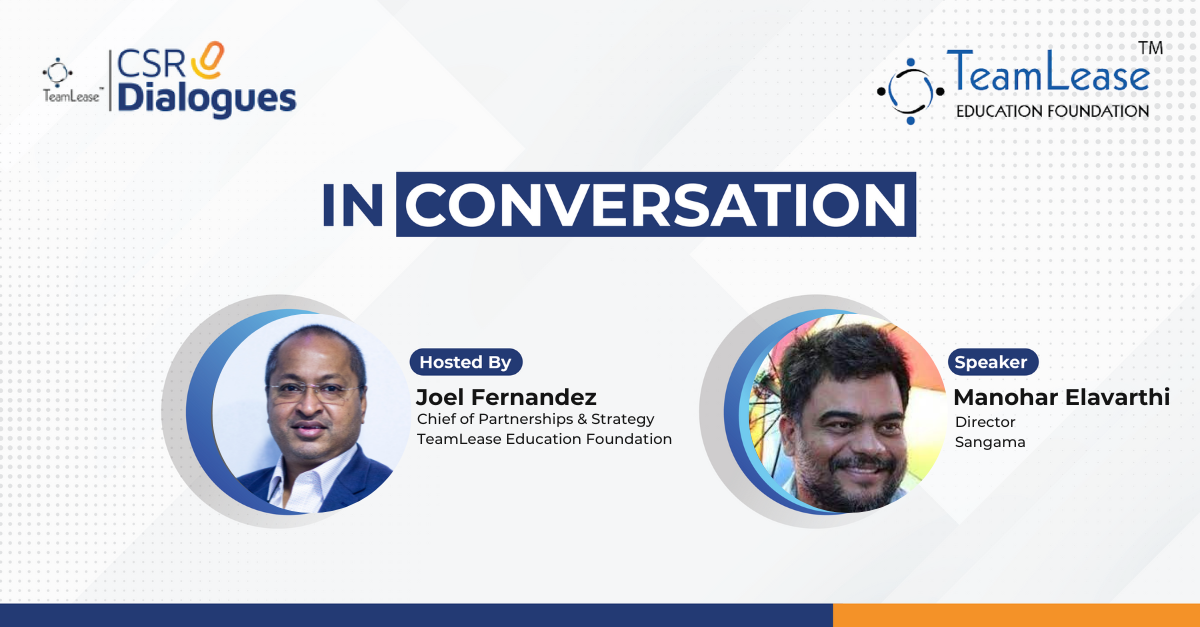
De-mystifying ALL the issues plaguing sexual minorities
The aim of TeamLease Education Foundation’s CSR Dialogues is to help companies understand the wide set of problems facing society. And through a better understanding of the issues, they will be able to ensure their CSR initiatives result in REAL, meaningful change.
While the corporate world does flag its support for the LGBTQ community across various media, the facts on the ground paint a different picture - of very little representation for transgender and other sexual minorities.
This is more a result of a muddled understanding of the various minorities and an inability to reach out to them, since many still do not have the courage to ‘come out’.
To demystify the complex problems these minorities face, we invited Manohar Elavarthi, who has spent years working with the marginalised. He is the founder of Sangama, one of the leading sexual minorities and sex workers rights organizations. He has also headed rights-based NGOs like Aneka, Suraksha, Solidarity Foundation and Sanchaya Nele. Further, he has conceived and helped found independent advocacy-focused community organizations like the Karnataka Sexual Minorities Forum, Karnataka Sex Workers Union, Karnataka Vikalachethanara Sanghatane (for persons with disabilities at Chikkaballapura).
The true impact of Elavarthi’s committed activism can be measured by the fact that thanks to him and fellow activists, Karnataka is the first (and only) state to assign a quota for jobs for transgenders - of 1%.
But as he reveals in his conversation with Joel Fernandez, Chief of Partnerships and Strategy, TeamLease Education Foundation, though the state’s policy is favorable, so far, just three members from the trans community have got teaching jobs via this quota.
View this excellent interview HERE
Also Read: Gender Inclusivity in the Workplace: Subha Chacko
So with a state government quota in place and Corporate India ostensibly supportive of the LGBTQ community, why are they still unemployable? Elavarthi offers key insights in his interview.
For instance, he reveals that one key reason that corporates cannot help the community, is that apart from very Westernised, urban elites, for whom coming out as gay or trans does not result in social boycott, for most Indians, revealing their gender identity or sexual preferences remains a distant dream. He highlights the long term mental health issues related to gay men or lesbian women complying with their family’s pressure to marry.
Another aspect Elavarthi highlighted was how in rural India, there are traditional communities for sexual minorities, which have their own unique culture, their own temples, roles in society and hence enjoy more acceptance. The strong sense of belonging that these communities foster amongst sexual minorities could offer CSR managers insights of how to build true acceptance for them within the corporate world.
Watch Elavarthi’s insights into the Hijra, Kothi, Jogi and other supportive rural communities HERE:
One opportunity for corporate intervention that came up in the interview was addressing the high prevalence of HIV amongst sexual minorities. Elavarthi builds a strong case for helping with nutrition to combat HIV (since the government does support HIV patients with medication).
Another unfortunate revelation was that within the world of sexual minorities too, there is more data on men. There appears to be consensus that about 10% of men are homosexual and about 20% are bisexual. So this offers some guidance to the corporate world on how ambitious their inclusivity programs ought to be. Sadly, there is very little data on women - highlighting the fact that the social pressure on women to conform is far, far higher.
Overall, Elavarthi’s clear presentation of the various communities in this space and the distinct problems each of them face, is truly eye-opening and does present CSR professionals with ideas on how to build programs that help sexual minorities at work.





